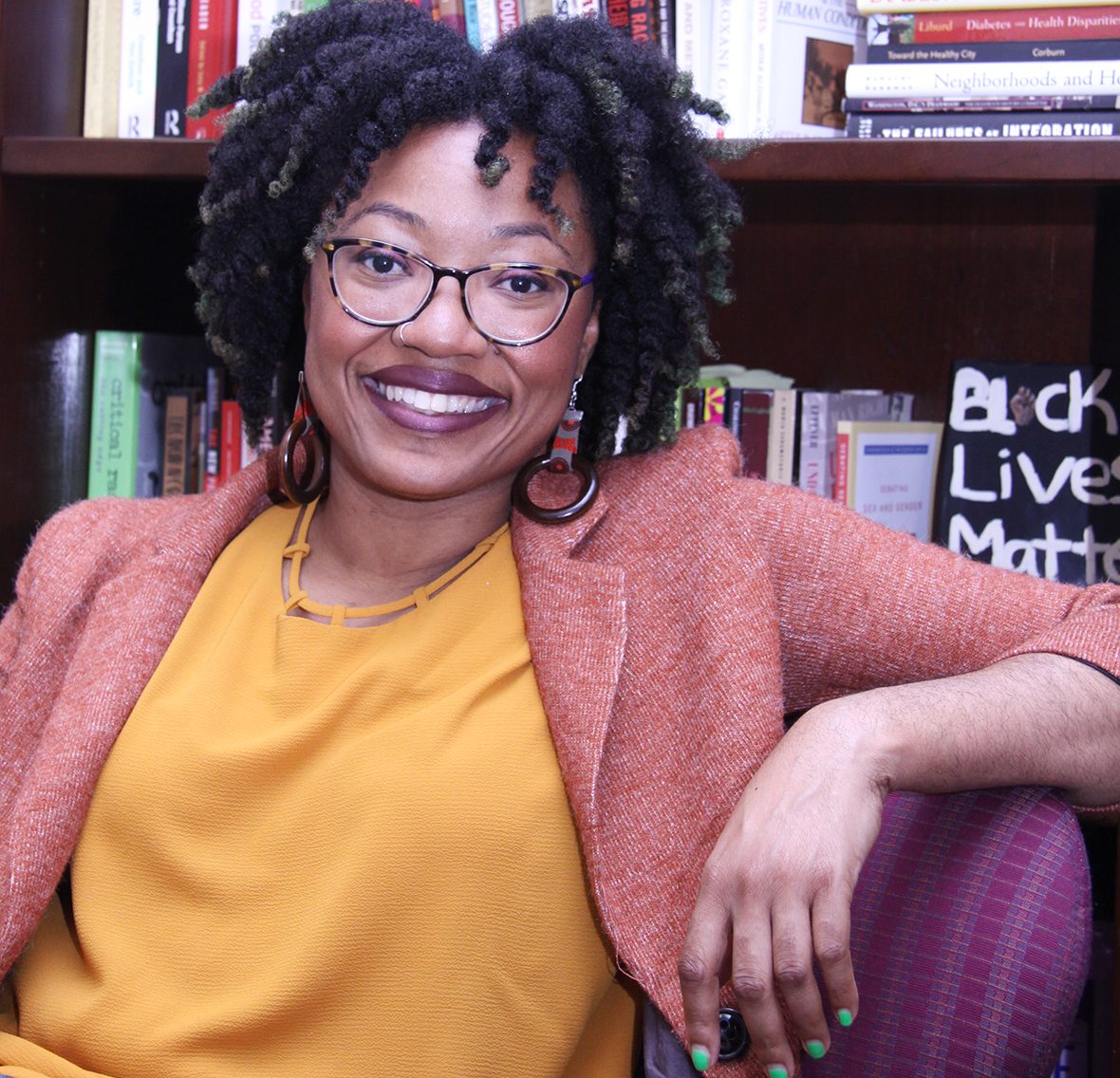Black Food Geographies: A New Book on Food Politics in Washington, D.C.
This post is part of our blog series that announces the publication of selected new books in African American History and African Diaspora Studies. Black Food Geographies: Race, Self-Reliance, and Food Access in Washington, D.C. was recently published by the University of North Carolina Press.
***
 In today’s post, senior editor, J.T. Roane interviews Ashanté Reese who is currently assistant professor of anthropology and co-Director of the Food Studies program at Spelman College. In fall 2019, she is joining the geography and environmental sciences department at the University of Maryland, Baltimore County. When she isn’t writing about race/space/food access or the practice of ethnography for Anthropology News, she’s teaching or practicing yoga and looking forward to the day when easy seat is actually easy. Follow her on Twitter @amreese07.
In today’s post, senior editor, J.T. Roane interviews Ashanté Reese who is currently assistant professor of anthropology and co-Director of the Food Studies program at Spelman College. In fall 2019, she is joining the geography and environmental sciences department at the University of Maryland, Baltimore County. When she isn’t writing about race/space/food access or the practice of ethnography for Anthropology News, she’s teaching or practicing yoga and looking forward to the day when easy seat is actually easy. Follow her on Twitter @amreese07.
 In this book, Ashanté M. Reese makes clear the structural forces that determine food access in urban areas, highlighting Black residents’ navigation of and resistance to unequal food distribution systems. Linking these local food issues to the national problem of systemic racism, Reese examines the history of the majority-Black Deanwood neighborhood of Washington, D.C. Based on extensive ethnographic fieldwork, Reese not only documents racism and residential segregation in the nation’s capital but also tracks the ways transnational food corporations have shaped food availability. By connecting community members’ stories to the larger issues of racism and gentrification, Reese shows there are hundreds of Deanwoods across the country.
In this book, Ashanté M. Reese makes clear the structural forces that determine food access in urban areas, highlighting Black residents’ navigation of and resistance to unequal food distribution systems. Linking these local food issues to the national problem of systemic racism, Reese examines the history of the majority-Black Deanwood neighborhood of Washington, D.C. Based on extensive ethnographic fieldwork, Reese not only documents racism and residential segregation in the nation’s capital but also tracks the ways transnational food corporations have shaped food availability. By connecting community members’ stories to the larger issues of racism and gentrification, Reese shows there are hundreds of Deanwoods across the country.
Reese’s geographies of self-reliance offer an alternative to models that depict Black residents as lacking agency, demonstrating how an ethnographically grounded study can locate and amplify nuances in how Black life unfolds within the context of unequal food access.
Ashanté Reese’s work is richly empirical, historically grounded, and speaks to the contemporary national debate about the industrialized food system, access to healthy foods, and connections between food justice, racial uplift, and social change. A much-needed and important work.—Kimberly Nettles-Barcelón, University of California, Davis
J.T. Roane: What type of impact do you hope your work has on the existing literature on this subject? Where do you think the field is headed and why?
Ashanté Reese: First, I hope it contributes to a growing call to critique the term “food desert” and its attending (and often wrong) policy prescriptions. Where we locate the problem determines what types of solutions we might create. Secondly, I hope that it introduces to some and reminds many that Black people aren’t just sitting around waiting for corporations to save us. I intentionally focused on everyday lives and ways of navigating an unequal food system, because I wanted to show that doing what we have to do to meet our needs is not exceptional. And relatedly – that in these navigations, people are critiquing/resisting/making space even within an anti-Black food system. Methodologically, I hope it offers a way or roadmap for doing ethnography of local food systems that connects the macro-level (supermarket access, racial residential segregation, etc.) with the micro (how people are making it).
There is an increasing number of Black scholars making food central to their analyses of the conditions that enable and constrain Black life. I am excited about that, because I think we’re seeing more thoughtful and rigorous (and hopefully sustained) engagements between Black studies and Food studies. I also see more explicit engagements with how food is political on multiple registers (not just in codified policy). I was thinking about this a lot recently when Savannah Shange told me, “I’ve never really thought of you as a food studies scholar. I guess you are, but I saw you using food to explore other kinds of issues relevant to Black people.” I think that is true and a result of some of the scholarship (in food and otherwise) that has influenced me to think of food as a lens through which to see many forms of survival and nourishment. I see that being taken up by many other scholars as well.
Copyright © AAIHS. May not be reprinted without permission.